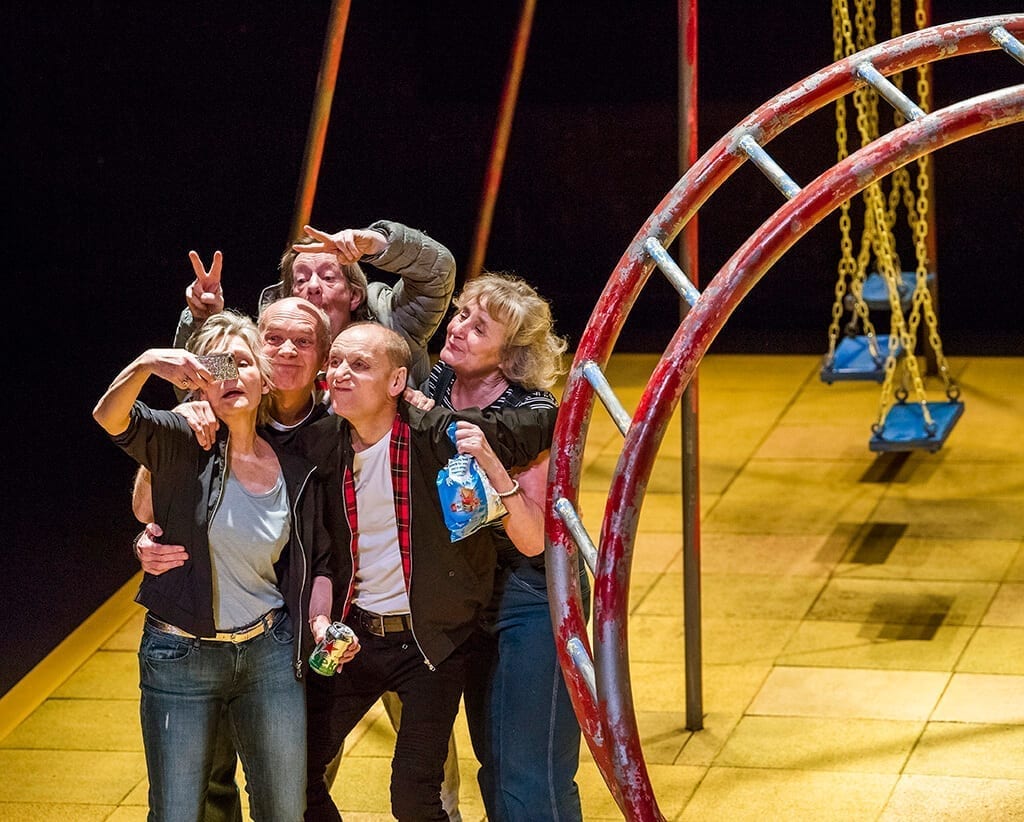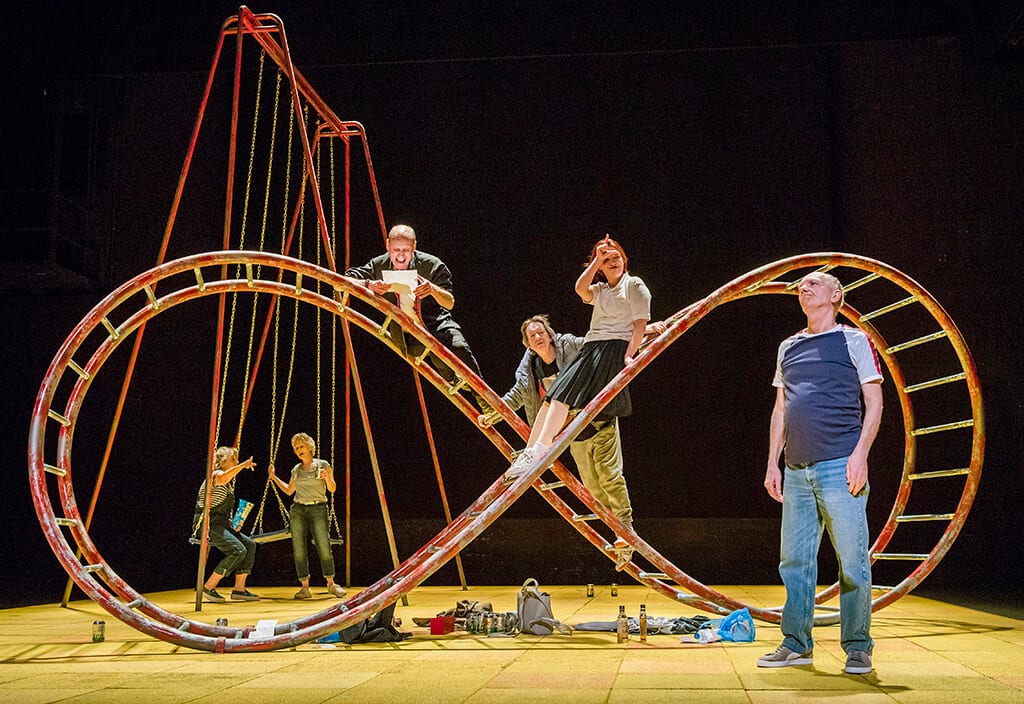Matthew Whittet’s new play started life at the Belvoir Theatre, Sydney in 2015 and now transfers to London for a short season with a new and English cast. However, the dominant conceit behind it remains: this is a play about late teenage life and love, but played by actors in their late 60s. There is no element of wistful retrospect about it – the displacement is one for the audience to wrestle with and resolve rather than the actors, who play it straight, as if their aged physiques twerking to music or clambering over the playground swings and climbing frame of Tom Scutt‘s set, are the real thing.
The play runs for ninety minutes, but it seems a long evening all the same. Apart from anything else there is just far too much shouting and ranting in the earlier sections and cuts could be made here to advantage. Once one gets beyond the initial premise, essentially two questions of judgment arise: what, if anything, does the presence of older, skilful but aged actors add, and does the play work in its own right as an original study of teenage angst? Unfortunately in neither case is the answer really positive.
There is no doubting the quality of the players who gamely engage with the physical challenges of the piece and provide careful approximations of teenage swagger, bluff, petty cruelty and games of domination. As you would expect they also provide finely graded accounts in each case of bruised vulnerability once the joshing gets serious. This is perhaps, and it is a big ‘perhaps’, the one area where the casting produces results that would exceed the results from younger performers.
However, as a play the kinds of dilemmas and conflicts explored here are familiar turf, and once the framing device is removed from consideration this is very clear. Two young boys who are total contrasts but best friends love the same girl, an unfortunate triangle that is revealed through the interventions, partly deliberate, partly naïve, of the other members of group, basically because they are in different ways excluded from participation in the central affective triangle. It is a play set on the final day of school that states that personalities and their likely reactions are already formed even when they all seem just poised to begin life’s journey of work, travel, relationships.
Among the players four stand out: Diana Hardcastle captured the unselfconscious sexual appeal of Jess, the girl at the centre who is all the more charming for not realising the extent and scope of her power. Michael Feast puffed himself up convincingly in the earlier sections only to set up a dramatic collapse of Mike’s false confidence in the final minutes. Against him Roger Sloman has the more difficult role as shy and self-critical Tom; but he grows amply in stature as the play progresses. Equally subtle is Sarah Ball’s portrayal of Lizzie, Mike’s much put-upon younger sister, apparently full of mouth and attitude but in fact desperate to support her sibling and gain his appreciation.
This play raises a broader question which needs to be more widely debated. It is becoming accepted now that any actor irrespective of fit of race, age or gender can be cast in a part in the cause of intertextual layering and complexity. While directors have a right and in some areas a duty to be as inclusive in casting as possible, there are limits beyond which the experiment becomes confusing rather than illuminating. Sadly this is one of them. This is not a case where defying conventional assumptions yields special new insights. When one thinks of the subtle way in which J.B.Priestley managed time shifts, or the grace with which the characters slip between younger and older versions of themselves in a recent classic such as ‘My mother said I never should’, one can only think of this as a missed opportunity.



